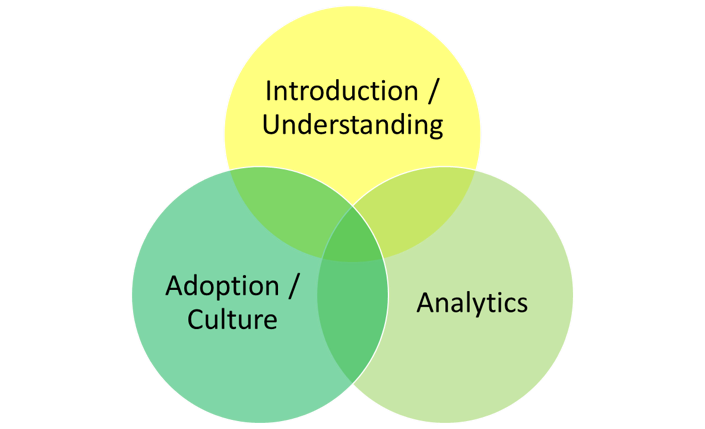Data Literacy: So What?
/A few months ago I was approached by Nicola to discuss the topic of Data Literacy as a series of thoughts around how there might be an opportunity to provide some training on the subject; as a result of that discussion Nicola asked me to write this blog to provide some insight.
The topic of data literacy seems to swirling around organisations at the moment and the push is to see how data literate they are and how they can get training to understand that. Now, I have been around data for a long time, over 20 years in fact, and I consider myself to be data literate; that said it doesn’t mean that I’m brilliant at all aspects of data.
The chances are that if you’re reading this blog then you’re either wondering what data literacy is all about, or you’re trying to find out more about training or assessment for your organisation.
I could tell you to just look around and see how it looks? I could just say well you could ask people how literate they feel? I could say many things but that doesn’t really answer the question particularly if you’re not overly sure what data literacy really is.
If that’s the case then read on, because I will provide you with a little insight into what data literacy is and how it might be of help to you!
My belief is that all organisations need to have a good level of data literacy in order to function efficiently, perhaps be more competitive or simply more effective; to do this you need to know that data literacy is neither a quick fix nor some kind of silver bullet; data literacy is a feeling, an understanding or part of your culture. Typically its made up of three key areas:
The other thing we need to understand about data literacy is that for the majority of the time, it’s about people and there comes the challenge!
Adopting data literacy could be a major change in an organisation, you need to understand what it’s about and determine how literate you feel your organisation is.
Then having achieved that you will need to understand about how you can make use of the information that you’ve gathered and you would, most likely, consider analytics as a way of achieving that; by using analytics we could ascertain the quality of the data we use and then determine which areas are not quite as literate as we had thought.
After that, having determined what and how we need to take that all important step and make the changes that we need to ensure that literacy is taken on board in the business and that we have a method of maintaining the level that we need.
Don’t forget though that data literacy will be different at all levels of the business, some more distant from the actual work such as senior stakeholders may need less literacy around the data and more around the outputs that they request in reports from the analytics function. In this case you have to understand all the facets of the business, what they need and where they currently are.
Also don’t think that just because you say it’s a good thing, that people will just agree because they most likely will ask a whole lot of questions about how you know that. Don’t forget that attaining widespread data literacy comes at a cost. People will need to be trained to make sure they are as data literate as they need to be and that takes time. Finally don’t forget that although increasing the level of data literacy will undoubtedly deliver benefits, those benefits tend to intangible and undefined at the start of the initiative and if you’ve been around change programmes before you’ll know how difficult they are to drive through.
“It is clear that if you have a data literate organisation, you will be able to tell the difference just by how much more efficient it feels and the quality and speed of decisions you’re able to take.”
So the drive for data literacy is very good news and businesses should strive to achieve it. After all if we can all be more data literate and more careful about what we do when handling data then we can achieve more, quicker, with less friction and generally have a better experiences.
Data literacy doesn’t bring that on its own, however if you bring it into the mix of your organisation then you are taking one small step to being more effective and efficient and why wouldn’t you want that!
If you would like to find out more about data literacy training, then use the button below to arrange a call with Nicola to see how data literacy training might benefit your organisation.
Written by Justin York - Justin is a Senior Data Governance Coach Associate, and is a performance innovation coach at Rubicon Coaching. He has over 25 years' experience in management positions in the military, and as a management consultant. He uses tools from coaching and consulting to bring change in both individual and team behaviours, as well organisational culture.











